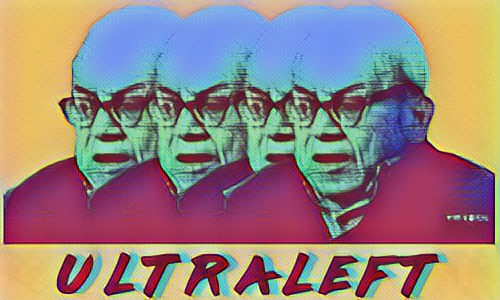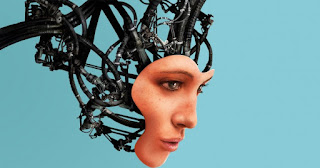Technocracy Rising
This growing trend of technocratic control started during the Great Depression in the 1930s. Replacing politicians with scientists and engineers was proposed as a solution to fix the dire economic dilemmas of the time, and was likely the inspiration for Aldous Huxley’s dystopian novel, Brave New World. But are fears of Technocracy unfounded? Could this portend a technocratic resurgence today?
There is a rising tide of technocratic influence and control in our society and this can be seen on either end of the political spectrum. What would this progressive-libertarian alliance look like?
Technolibertarianism is a political philosophy with roots in the internet's early hacker cypherpunk culture in Silicon Valley in the early 1990s and in American progressivism and libertarianism. The philosophy focuses on minimizing government regulation, censorship or anything else in the way of a "free" Internet culture. Techno-libertarians embrace fluid, meritocratic hierarchies (which are believed to be best served by markets).
Critics have suggested that a "technocratic divide" exists between a governing body controlled to varying extents by technocrats, and members of the general public. Said another way, technocratic divides are "efficacy gaps that persist between governing bodies employing technocratic principles and members of the general public aiming to contribute to government decision making." The central challenge raised by these divides is that technocrats provide privilege to the opinions and viewpoints of technical experts, while marginalizing the opinions and viewpoints of the general public. The top-down technocracy must be balanced by future-facing libertarianism.
Before the term technocracy was coined, technocratic or quasi-technocratic ideas involving governance by technical experts were promoted by various individuals, most notably early socialist theorists such as Henri de Saint-Simon. This was expressed by the belief in collective ownership over the economy, with the function of the state being transformed from one of pure philosophical rule over men into a scientific administration of things and a direction of processes of production under scientific management.
We need citizen-scientists to rise up to take the place of decision makers, yet they must be subject to direct democratic checks that make them responsive to the will of the people. When market means and socialists ends coalesce, we get libertarian technocrats which respect the balance of centralism versus decentralism.
Techno-Anarchism will be the next revolution to form from a more modern democracy by acquiring control over modern industry technically, thus allowing the people to assume control of an oppressive government once democracy in the post-modern era becomes tyrannical and oppressive and the aristocratic minority have taken control of the common will of the people through advantage accumulated by them and a hold on the governments maintenance of justice.
Technocracy will seize technology, industry, media, markets, politics, law, and order in modern capitalist democracies as society evolves past rationalizations of wealth and replaces those rationalizations with analytics rather than abstractions.
Production must be controlled by technocrats rather than aristocrats. Industry must be seized, as is the case in communism, but through technology. In such a way, violence can be successfully avoided. Technocracy is a peaceful end to struggle between classes entirely, an end to politics, an end to rationalization of wealth, and some heightened sense of self worth and humanity.
The technocratic society will be made necessary by the formation of some government of Artificial Intelligence to control all other technology, capable of maintaining checks and balances on itself. Techno-Anarchism would use a computer to calculate our global maximum sustainable supply and our maximum sustainable demand in order to allocate resources. Central planning with a machine is not hierarchical because it does what we tell it. You ask a question and it gives you an answer. There is no planning class that puts its authority over you deciding what gets made. Add the fact that we can use machines to do the tedious labor so humans will be able to be truly free and the world will be sustainable.
This scenario is not about a single megacomputer as the chief central planner. Techno-anarchism is about planning production with computers at the local site, which then confederate or network upward into direct democratic councils. It's a diference in how power flows.
The biggest currents in anarchism (syndicalism, anarchist-communism) have advocated for decentralized democracies that then confederate with each other into larger planning bodies (with power remaining at the local council). This confederal planning is the means for disperate collectives to coordinate production across the globe. The confederal level (perhaps subdivided into bioregions) is where decisions should be made relating to global resources. But for that to be anarchism, power or decision making would have to remain at the lowest level of the community council or workplace council.
If this type of structure is just using a central computer to allocate resources, but with power remaining decentralized, with these democratic confederations deciding to act on computer data, it would still be a decentralized economy. Techno-libertarians would insist that markets aggregate through means of decentralized computing.




Comments
Post a Comment